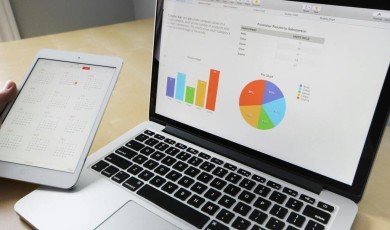
In today’s competitive digital landscape, every decision counts — and those made with data-driven precision count the most. The data science approach has become a game-changer for companies aiming to make smarter choices, enhance customer experience, and outperform competitors. From predicting consumer behavior to optimizing marketing strategies, it’s reshaping how modern businesses grow, connect, and communicate.
Understanding the Data Science Approach
At its core, the data science approach is about transforming raw data into strategic insights. It combines advanced analytics, artificial intelligence, and statistical modeling to uncover patterns that are invisible to the naked eye. Businesses can use these insights to improve efficiency, reduce risk, and innovate faster.
Data scientists don’t just collect numbers — they interpret them. They identify what matters most to a company and translate complex datasets into clear, actionable steps. Whether it’s forecasting demand, improving logistics, or measuring audience engagement, this approach helps organizations make decisions backed by evidence rather than instinct.
The Power of Data-Driven Decision Making
One of the most significant benefits of the data science approach is its ability to support objective decision-making. Instead of relying on assumptions or outdated methods, businesses can rely on facts and trends drawn directly from their operations and customers. For example, e-commerce brands use data science to understand which products sell best during specific times of the year. Healthcare providers analyze patient data to predict potential health risks before they occur. Even small businesses now use analytics to manage inventory, target advertising, and personalize customer experiences.
This shift from guesswork to precision has made data one of the most valuable assets a company can own — the fuel that powers smarter, faster, and more efficient growth.
Turning Data into Competitive Advantage
Data science doesn’t just tell companies what is happening — it helps them understand why it’s happening and how to respond. Predictive analytics allows teams to anticipate changes before they occur. Machine learning algorithms can recommend strategies, automate tasks, and uncover untapped opportunities. But the real competitive advantage lies in integrating data science across departments. When marketing, finance, and operations all speak the same “data language,” companies can align goals, reduce waste, and maximize impact.
This interconnected approach also improves digital visibility. For instance, marketers using SEO analytics can identify which strategies deliver stronger rankings and invest in building quality backlinks — trusted references from reputable websites that boost credibility and search engine performance. Data helps determine where these links should come from, how they perform, and which audiences they reach.
Marketing in the Age of Data
Modern marketing is driven by insights. With the right data, businesses can identify audience interests, optimize ad spending, and design personalized experiences that convert. The data science approach has made it possible to measure every detail — from click-through rates to emotional engagement — turning creativity into measurable performance. In the field of SEO, data science provides the foundation for smarter campaigns. By analyzing competitor performance, keyword trends, and link quality, companies can strengthen their digital reputation. Building quality backlinks, for example, is no longer a guessing game — it’s an analytical process guided by data models that evaluate domain authority, content relevance, and user trust.
This synergy between analytics and marketing ensures that businesses reach their audiences effectively and sustainably, without wasting resources on blind promotion.
Data Science and Customer Experience
Beyond marketing, data science is redefining how brands interact with customers. Personalized recommendations, predictive customer support, and behavioral analysis all stem from advanced data modeling. Streaming platforms like Netflix or Spotify use machine learning algorithms to anticipate user preferences, while online retailers recommend products based on purchase history and browsing habits. Each of these experiences is powered by the same underlying principle: understanding people through data.
The result is deeper loyalty, higher satisfaction, and stronger emotional connection — key components of long-term business success.
Challenges of Implementing Data Science
While the benefits are undeniable, adopting a data-driven strategy comes with challenges. Many organizations struggle with data quality, fragmented systems, or the lack of skilled professionals to interpret complex results. Moreover, managing data responsibly is essential. Ethical use of information, transparency, and compliance with privacy laws must remain top priorities. Companies that balance innovation with integrity not only protect their reputation but also earn customer trust — a vital factor in any digital transformation.
The Role of Human Insight
Despite automation and algorithms, human expertise remains irreplaceable. Data science may provide insights, but people provide meaning. Analysts, strategists, and decision-makers bring context, creativity, and ethical judgment to the numbers. The combination of human intelligence and artificial intelligence produces the best outcomes. Machines identify opportunities — humans decide which ones matter. This collaboration is the foundation of truly smart organizations.
How Businesses Can Start Using Data Science
Implementing a data science approach doesn’t require massive budgets or complex infrastructures. The first step is developing a data-conscious culture. Encourage teams to think analytically, base decisions on facts, and question assumptions.
Next, invest in accessible analytics tools and training. Cloud-based platforms make it easier than ever to collect, visualize, and interpret data. Partnering with data experts or agencies can also accelerate the process and help integrate insights into daily operations. Finally, set measurable goals. Define what success looks like — higher conversions, reduced costs, improved engagement — and track progress consistently.
The Data-Driven Future of Business
The companies that thrive in the coming years will be those that understand and apply the data science approach with precision, ethics, and creativity. By transforming information into strategy, data science gives businesses the power to anticipate change rather than react to it. In this new era, success isn’t just about having data — it’s about using it intelligently. Whether you’re optimizing marketing, improving operations, or strengthening online presence through quality backlinks, data science provides the roadmap to smarter growth. The future belongs to those who see beyond the numbers and use data not just to measure progress, but to create it.








